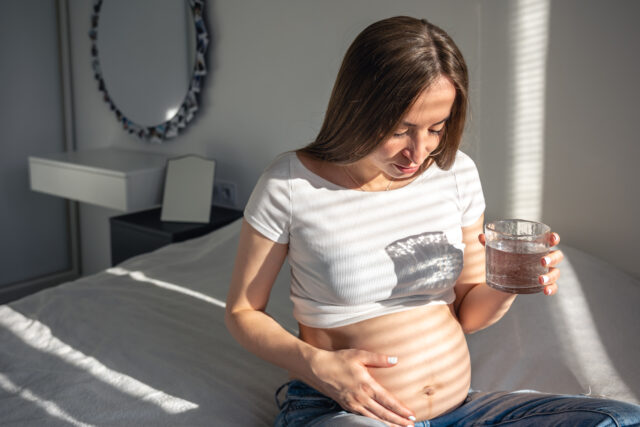Pregnancy requires proper care, compassion, and balanced nutrition to support the health of both mother and baby. Among essential nutrients, Vitamin D plays a crucial role, especially in winter when sunlight exposure is limited. In addition to maintaining the mother’s health, this nutrient is essential for the baby’s immune system, bone formation, and general growth. A diet rich in vitamin D, the right supplements, an active lifestyle, and safe sun exposure can all help pregnant women maintain adequate vitamin D levels.

Importance of Vitamin D during pregnancy
Vitamin D is crucial during pregnancy, particularly in winter, when sun exposure is often limited. Here’s why it matters:
- Bone Health for Mother and Baby
Vitamin D helps in the proper absorption of calcium and phosphorus, which are essential for developing the baby’s bones and teeth. It also supports the mother’s bone health, preventing conditions like Osteomalacia.
- Immune System Support
Vitamin D boosts the immune system, reducing the risk of infections for both mother and baby during winter, when colds and flu are more common.
- Reduced Risk of Complications
Adequate vitamin D lowers the risk of pregnancy complications like preeclampsia, gestational diabetes, and preterm birth.
- Healthy Fetal Development
Vitamin D plays a role in brain development and reducing the health complications like asthma and allergies in the baby.

Risks of Vitamin D deficiency during pregnancy:
When the body lacks Vitamin D, especially during winter months, it can lead to several serious health risks for both the mother and baby:
For the baby: Insufficient Vitamin D can lead to rickets, weak bone development, and a compromised immune system.
For the mother: Deficiency can result in muscle weakness, joint pain, fatigue, and may even increase the risk of complications during childbirth.
Maintaining Vitamin D levels during pregnancy:
Shorter days and less sunlight during the winter cause the skin to produce less vitamin D. Due to the increased risk of deficiency, food consumption and supplementation are essential.
Safe sun exposure: Even a short wintertime sun exposure can help in the production of vitamin D in your body. Every day, spend 15 to 20 minutes in the sun, preferably in the morning.
Consume Vitamin D-rich foods: Fatty fishes like Salmon, sardines, mackerel, tuna, egg yolks, fortified milk, and cereals are excellent natural sources of Vitamin D.

Consider vitamin D supplements: If dietary sources and sunlight exposure are not enough, consult your doctor about taking Vitamin D supplements. It’s essential not to self-medicate and follow your healthcare provider’s guidance.
Stay active indoors: Engaging in light indoor exercises, such as yoga or stretching, can promote overall health. Doing so in well-lit areas ensures you benefit from any available sunlight.
Disclaimer: This article solely offers general information, including exercise and health tips. For a specific medical diagnosis, always seek the advice of an expert.




